|
By Carole Copeland Thomas, MBA, CDMP, CITM Multiculturalism represents the landscape of our community as human beings. It’s a bigger concept than diversity because its very meaning requires an open platform for embracing multiple cultures, ethnic groups, and ideologies within a society. Multicultural means many cultures operating in the same space. America, like other countries, is multicultural because different cultural groups maintain a meaningful co-existence within the span of 50 states. Even though there are decades of history where oppression, racism, discrimination and legislative restrictions affected one ethnic group over another, the cultural coexistence remains a vital link to our identity as Americans. Multiculturalism demands that you coexist with others. In a truly multicultural society, one cultural group does not dominate another. The abundance theory is the prevailing rule, where society’s output is big enough for all of our cultures and ethnicities to be represented in an equally respectable manner. We seem to fully embrace multiculturalism in food. Visit any mall or shopping center in any city or town and the food courts are populated with people from all walks of life. From soul food to Cajun cooking, to Chinese cuisine to Indian vegetarian dishes, a typical food court presents the best argument that cultural pluralism can yield good value to any consumer’s taste buds. On the other hand, some aspects of multiculturalism are closely guarded and tolerated only to a point. It’s fascinating to watch professionals in the workplace celebrate the worthiness of multiculturalism on the job. One would think that the level of commitment to cross cultural causes would get packed up and taken straight home to share, just like that leftover shrimp fried rice gets taken home after the party at work has ended. Instead, far too often you witness the reinforcement of cultural silos as employees head to cars, buses, and trains to take them back to their neighborhoods that are all White, all black, all Hispanic, or mostly Asian. The social conformity of our neighborhoods provides the greatest opportunity for us to break through our comfort zones, venture out, and live among other cultures. It represents one of the central frontiers of true multiculturalism. Diversity is an important byproduct of multiculturalism. It speaks to the segmentation of our societies and frames the very categories that define who we are as individuals and members of specific groups or cultural components. I define Diversity from this perspective: Diversity is understanding, appreciating and ultimately managing difference and similarities at the same time. The emphasis is on the word AND. Diversity looks at both difference AND similarities, with one not being more important than the other. That’s where most people make a mistake by focusing on either one’s difference or one’s similarities without realizing that BOTH are in operation at the same time. For example, as an African American female, when speaking at conferences and meetings, I am accustomed to being “the only one,” that is, the only person of color either attending the meeting or speaking at the meeting. To focus on my difference from the rest of the conference attendees is only embracing half the experience. The other half recognizes that there are personal values, educational experiences, regional interests and industry issues that I share as similar points of intersection with those attending the same meeting. To just focus on my ethnic difference cancels out the rich value of those similarities of which I share in common with others. Okay, let me explain it another way. Some years ago I traveled to Kenya for the first time. It was the trip of a lifetime for me. The minute I stepped off that airplane, pulled out my American passport and presented it to the customs officer at the Nairobi, Kenya Airport, my differences AND similarities were on full display with every other American on that plane. Some of the passengers had black skin like mine. My travel mates (now called the Kenya Sistahs) were also African American females. Some of the passengers were white Americans. Others were Hispanics while other were Asian Americans. There were Europeans, Asians, and Africans on the plane, too. So the differences were on full display from ethnicity, gender, and socioeconomic class. However, the similarities also represented this collection of travelers. I held an American passport, as did many others on the plane. And meeting other Americans on that maiden voyage trip to mother Africa was so very exciting, since we were all thousands of miles away from home, and it was comforting to connect with other ex-patriots from the States. In diversity work, the similarities are as important as the differences. Similarities are on equal footing with differences. That is so important to remember since there is an incorrect assumption that diversity is polarizing because it only focuses on differences at the expense of similarities. You see it in families all the time. Brothers and sisters with the same biological parents, yet their values and opinions are as different as night and day. I see it in my own adult daughters, Michelle and Lorna. Their political, spiritual and economic opinions are very similar. However, their work habits, approach to preparation and personalities completely different. The same is true for extended families, members of associations and corporate colleagues. Differences should be valued with the same level of importance as similarities. They represent a different slice of the diversity equation. Take advantage of the countless situations that can frame your multicultural and diversity points of reference. It can become a lifelong opportunity for you to enhance your knowledge base while building cross-cultural relationships that can have a positive impact on your life. 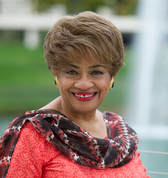 Carole Copeland Thomas, MBA, CDMP, CITM is a Boston based speaker and consultant focusing on global diversity, multiculturalism, and inclusion. She has been featured in the New York Times, Boston Globe, WGBH Radio, Black Enterprise Magazine, and CBS-TV. Visit Carole online at www.carolecopelandthomas.com
0 Comments
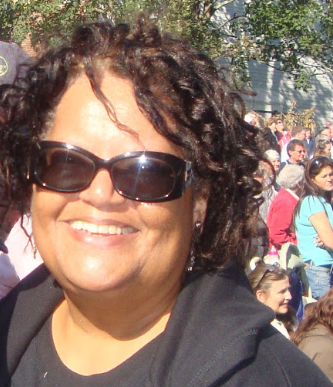 Educator and Activist Nancy Thompson Educator and Activist Nancy Thompson
Focus On Empowerment can be heard every Thursday at 1pm Eastern.
Log Onto: www.blogtalkradio.com/globalcarole Listen LIVE or Download Anytime At This Blog Post. Each broadcast can be replayed immediately following the show. ======================== What should have been topics long ago off the table are more important than ever. Front and center in our current presidential campaign are diversity and multicultural issues. In our corporate boardrooms: diversity and multicultural issues. In our classrooms and teacher lounges: diversity and multicultural issues. In our work cubicles, office spaces, field sites, labs, departmental divisions, police stations and executive suites: diversity and multiculturalism. They are the topics that thread us together for better or worse, richer or poorer, in sickness and in health. Diversity and multiculturalism are who we are and how we connect. We just need to find better opportunities to bridge the gap between enhancing our educational awareness of each other to yield better and more effective cooperative collaborations. We’ll explore these twin topics during today’s program in our conversation with educator and community advocate Nancy Thompson. She’ll talk about an upcoming Community/Police Forum that will cover everything from racial profiling to drugs in our street. Then I will walk you about three new events my company is producing to help drive the conversations forward: The November 3rd Multicultural Conference and our upcoming public trips to India and Cuba. Topics that should pique your interest. Topics that should expand your thoughts and actions in relevant and amazing new ways. ====================== CLICK HERE TO FIND OUT MORE ABOUT THE NOV 3rd MULTICULTURAL CONFERENCE CLICK HERE TO FIND OUT MORE ABOUT OUR TRIPS TO INDIA AND CUBA Carole's Father Tuskegee Airman Wilson Copeland Honored at The March 3, 2016 Black History Breakfast3/1/2016 His stories and expansive capacity to understand world issues were unrivaled. From an impoverished background to graduating from college and survived the bitterness of American racism and discrimination, my father, the late Wilson A. Copeland, was indeed a unique individual. I yearn to travel and understand the world just like him. I navigate the world as an entrepreneur because of him. Our relationship was sometimes topsy turvy, but he was my dad and I loved him. He was a Tuskegee Airman, and we will honor him at Thursday's Black History Breakfast. =================================== The Late Wilson Albert Copeland was born in 1917 in Clinton, South Carolina to Carrie and Bradley Copeland. When his parents divorced he moved to Bel Air, Maryland with his mother and older brother, Eugene. (His mother eventually remarried John Brown in Bel Air, Maryland. Brown was a World War I Veteran.)
Mr. Copeland was enrolled in the then segregated Bel Air/Harford County school system, a system which at that time only provided educational opportunities for Blacks through the ninth grade as further education and training were discouraged beyond that point for people of color. Because of those circumstances, his brother sought employment, soon married his sweetheart Marguerite, and had one son, Charles (now all deceased). Encouraged by his mother and driven from within, he rented a room from the Marshall family who lived in Baltimore directly across the street from Douglass High School, some thirty miles from Bel Air. Working in Baltimore during the week and hitchhiking and working back in Bel Air on the weekends, he graduated from Douglass High School in 1937 and won a scholarship to Virginia State College for Negroes. He went on to obtain a bachelor’s degree in business administration from the college in 1941. After a brief period working in Maryland, Wilson Copeland joined the military as America entered World War II. Mr. Copeland trained at Tuskegee Army Air Field in Tuskegee, Alabama as a Second Lieutenant in the United States Army Air Corps during the war. He would later be known as one of the Tuskegee Airmen. (An ulcer prevented him from completing pilot school, although he continued on in a leadership role in the US Army Air Corps.) A bitter remembrance of racism for him was traveling with other Black soldiers on a military train in the South. Arrangements had been made with restaurants in the region to feed the soldiers. On one occasion the Black soldiers were brought cold box lunches and were forced to eat their meals onboard the trains. In another car, the German prisoners of war were escorted off the train and were allowed to eat hot meals inside of the restaurants along the route. Later he served as the Adjutant Officer assigned to the B25 Bombers at Selfridge Air Force Base in Michigan. Following his honorable discharge, he found employment and moved to Detroit, renting a room in a boarding home in the Black section of the city. The owner of the building, Rev. James A. Charleston, lived next door with his wife, Nora Dean and school teacher-daughter Gwendolyn. One thing led to another when Wilson and Gwendolyn met. They married on December 22, 1946. From this union two children are born, Wilson A Copeland II in 1949 and Carole Dean Copeland in 1953. (Carole was named after both grandmothers—changing Carrie to Carole and using “Dean” from Nora Dean. Instead of a “Junior,” the son became Wilson A. Copeland II.) Active as a Trustee at St. Paul AME Church (pastored by his father in law, Rev. Charleston), Mr. Copeland was engaged in successful business ventures in Detroit including co-ownership in Blue Flame Oil Company. Despite that success, he yearned to build a business in one of the newly independent and developing nations on the African continent. His widespread travels throughout Africa led to marginal and less than successful business projects in Ghana (West Africa) in 1959, shorty after its independence. One of his American business partners was Rev. Albert Cleage, father of the celebrated writer Pearl Cleage. Sadly his marriage failed and he divorced in the early 1960s. Although he married briefly years later, he would never lose affection for his beloved Gwendolyn. He was eventually recruited by the United States Department of State and spent twenty years working for various posts at the American Embassies in Ghana, Nigeria and Liberia. His last eight years of government service were in Nairobi, Kenya. Mr. Copeland retired in 1979, lived briefly in Pennsylvania near his daughter and her family before relocation to Los Angeles. He enjoyed telling stories of his numerous adventures, which included safaris, participating in several historical events, including the first meeting of the Organization of African Unity in Ethiopia in 1963. Mr. Copeland also rescued an American diplomatic pouch and was stranded in Accra, Ghana in the middle of a military coup. At great risk to himself, Mr. Copeland was able to get to the airport, extract the courier and the pouch, and in spite of having to get by several army road blocks and being shot at and chased by rebels, was able to safely return the courier and the pouch to the American Embassy. For this act, he was awarded a State Department Commendation and was made an honorary member of the Embassy Marine Corp Guard. Travel was second nature to Mr. Copeland and the world was his living room. Even after being diagnosed with lung cancer in the late 1980s, he continued to live life to the fullest, frequently driving cross country from California to the East Coast to visit friends and family. He enjoyed his 50th college reunion in Petersburg, Virginia in 1991 and then traveled to Detroit, where he visited with his son and his family and attended the Tuskegee Airmen Convention. His travels took him to Costa Rica in October 1991, before returning to his home in Los Angeles. Wilson A. Copeland departed this life on October 31, 1991, with his spirit, pride and dignity intact. He was buried in the family plot at Elmwood Cemetery in Detroit. Years later in 1998 his first wife, Gwendolyn would be buried next to him. Wilson Copeland was a member of Kappa Alpha Psi Fraternity, the Masons and the Tuskegee Airmen, Inc. The Black History Month Breakfast will be held on Thursday March 3, 2016 at the Boston Colonnade Hotel from 8:30 am to 11:00 am. We will celebrate the military achievements of Rev. Dr. Carlita Baldwin Cotton at the March 3rd Black History Breakfast. Rev. Dr. Carlita Baldwin Cotton has combined her love of ministry and the military to serve others throughout her career path of achievement and excellence. An only child, Carlita was born to Rev. Carl L. (deceased) and Dr. Alexinia Y. Baldwin in Birmingham, Alabama. She was baptized, converted and joined St. John AME Church while living in Birmingham.
Carlita first heard the call to the military, joined the United States Air Force in 1980 and served a variety of positions until her retirement in 2000. She was a manager, supervisor and educator and served as a Russian linguist, a strategic debriefer and a combat interrogator during her years of service. She received numerous military awards and citations, including the Joint Service Meritorious Service Award, Joint Service Achievement Award, Air Force Achievement Award and was recognized by the Director of the National Security Agency. Since retiring from military service, Carlita has a permanent listing on the wall at The Women in Military Service Monument in Arlington, Virginia. Carlita is a lifetime member of the American Veterans (AMVETS). She is a lifetime member of Disabled American Veterans and a lifetime and founding member of the Berlin, Germany chapter of the American Legion. Carlita graduated cum laude from State University of New York at Albany in 1989 with a bachelor’s degree in Russian language and literature. She received her masters of divinity degree from Howard University in 2000 and received a Ph.D. in educational psychology from the University of Connecticut in 2008. She is a clinician/counselor and professor of psychology at Goodwin College in East Hartford, Connecticut. Carlita holds memberships in several organizations including Delta Sigma Theta Sorority, Women in Ministry/New England Annual Conference, Pi Lambda Theta Honors Fraternity and Altrusa International, Inc. Rev. Dr. Carlita Cotton is also an ordained itinerant elder in the African Methodist Episcopal Church. She is happily married to Rev. Hollis M. Cotton, pastor of St. James AME Church in Danbury, Connecticut. The Black History Month Breakfast will be held on Thursday March 3, 2016 at the Boston Colonnade Hotel from 8:30 am to 11:00 am. We celebrate the achievements of Kenn Turner, who served in the US Navy for 26 years before retiring in 2006. He will be honored at the March 3, 2016 Black History Breakfast at the Boston Colonnade Hotel.
============= Kenneth L. Turner, Director of Diversity & Inclusion/Compliance, joined the Authority in June 2013. He oversees and manages the Authority’s multiple diversity programs, including business and supplier diversity, workforce diversity, and airport concessions, as well as all compliance initiatives associated with Massport’s Disadvantaged/Minority/Women Business Enterprise programs. Prior to joining Massport, Mr. Turner served as Deputy Secretary for Administration & Finance for the Commonwealth of Massachusetts Department of Veterans’ Services. He also has over 20-years of general management and executive experience in various Fortune 100 companies including having served as a Senior Vice President at AOL Time Warner. A retired U.S. Navy Captain with 26-years of service, Mr. Turner began his military career as NRTOC scholarship midshipman and received his B.S. degree in Liberal Arts and a commission in the Navy from Southern University and A&M College in Baton Rouge LA. Upon graduating college he completed the Submarine Officer Basic Course, the Torpedo Officer Course, and Tactical Weapons Officer Course at Naval Submarine Base New London; the C-3 Poseidon Missile Strategic Weapons Officer course at Naval Guided Missiles School Dam Neck; and the Trident C-4 Missile Strategic Weapons Officer course before reporting aboard USS Stonewall Jackson (SSBN 634 Blue Crew) as Assistant Weapons Officer. During his initial sea tour Capt. Turner completed the officer submarine warfare requirements to receive his gold dolphins and was certified as a Strategic Nuclear Weapons Systems Officer. He was assigned shore duty at Naval Guided Missiles School Dam Neck where he served as course supervisor for the Prospective Commanding Officer/Executive Officer Trident C-4 Nuclear Weapons System Course and received his Master Training Specialist qualification. Transferring to the Naval Reserves Capt. Turner served in nine units over the course of 20-years and was selected as Commanding Officer of three reserve units: NR AFDM-6 Competent Det. 0618 Pearl Harbor; NR SUBASE Pearl Harbor Det. 918; COMSUBGRU 2 Det. 101 New London. After 911 he transferred to The Pentagon in Washington DC where he served on the Chief of Naval Operations (CNO) OPNAV staff as Deputy Chief of Staff, Programming Division, Deputy Chief of Naval Operations (Resources, Warfare Requirements, and Assessments). Capt. Turner retired in 2006. Over the course of his career Captain Turner received numerous awards for his service to include: the Navy and Marine Corps Commendation Medal (2 awards); the Navy Achievement Medal (4 awards); the Navy Sea Ribbon (2 awards); the Armed Forces Reserve Medal; and the National Defense Service Medal. The Black History Month Breakfast will be held on Thursday March 3, 2016 at the Boston Colonnade Hotel from 8:30 am to 11:00 am. From Left to Right: Enoch Woodhouse, Willie Shellman, Harvey Sanford, The Late William Vickers, Delbrook Binns and Dr. Harold May Photographer: Dennis Stein/Metrowest Daily News ===================================================================================== Our March 3, 2016 Black History Breakfast will pay tribute to the six LIVING New England area Tuskegee Airmen and the Tuskegee Airman who just passed away earlier in February. Below are their biographical profiles and the history of the New England chapter, headed by Willie Shellman. All will be honored at the Breakfast. Special Thanks to Willie Shellman for providing this article about these extraordinary men. -Carole Copeland Thomas A Short History of the Tuskegee Airmen and Biography Notes of Massachusetts Tuskegee Airmen The New England Chapter is based in Massachusetts and is one of approximately 50 chapters of Tuskegee Airmen Incorporated. Tuskegee Airmen Incorporated (TAI) is a national civic organization that was formed in 1973. The goals of TAI are to:
On January 16, 1941 the War Department announced the formation of the 99th Pursuit Squadron, a black flying unit, to be trained at Tuskegee, Alabama, the home of the Tuskegee Institute. Thus the "Lonely Eagles," as the black pilots called themselves, became reality. The first class, which was designated 42-C, began on July 19, 1941. Five students completed the training and received their wings on March 7, 1942 The 99th was later joined other Tuskegee squadrons to form the 332nd Fighter Group. The 332nd flew P-40, P-39, P-47, and P-51 aircraft in combat throughout the Mediterranean and European Theaters and became a respected and decorated group of fighter pilots. The group was known as the "Red Tails" for their aircraft paint scheme. The bulk of the Black flyers were in the 332nd Fighter Group. Veterans of the 332nd Fighter group and newly trained pilots were used to form the 477th Bombardment Group. The Bombardment squadrons were equipped with B-26 aircraft and later with B-25s. The war ended before the 477th Bombardment Group was deployed overseas. From the inception of the 99th through the period that signaled the ending of World War II (1946), the following number of black combat flyers completed their training:
Class 46-C, which graduated on June 29, 1946, was the last pilot class to finish at TAAF. In order to support the black flyers ten times as many administrative and ground support personnel were trained. In order to keep the pilots flying the Army Air Corps trained and deployed Black servicemen in all the required support functions (mechanics, ground crew, nurses, etc.). The “Tuskegee Experiment” succeeded beyond the expectations of even those who proposed the program. The excellent record of the 332nd Fighter Group in combat led to a review of the War Department's racial policies and a presidential order in 1947 to desegregate the United States Armed Forces. There were 14 pilots and numerous support personnel from Massachusetts. Today the following Tuskegee Airmen are living in Massachusetts. *Raymond Baker entered the U.S. Army in 1944. He went to Biloxi MS for basic training and then was assigned to Tuskegee Army Airfield. After several months Raymond began pilot training as a member of Class 45I. The war ended before his completion of the flying program. Mr. Baker was discharged in July 5, 1946 and returned to Brockton, MA. *Jack Bryant grew up in Chicago, IL and followed his brother into pilot training in the Army Air Corp in 1945. The pilot training program at Tuskegee Army Air Field was discontinued before Jack’s class completed training and Jack was discharged in 1946. Jack entered the University of Michigan and graduated with a degree in Civil Engineering. In 1961 Jack moved to Boston and started Bryant Engineering, a civil engineering firm specializing in major infrastructure projects. *George W. Giddings from Yonkers, N.Y attended Fisk University. He entered Aviation Cadet training in 1942 and was assigned to Class 43H at Tuskegee Army Air Field. Served until 1946. George was grounded due to an eye problem. He then attended Navigator training at Hondo AAF, Texas, Bombardier training at Roswell AAF, NM and Gunnery training at Yuma AAF, AZ and was discharged in 1946. *Harold May, MD. from Poughkeepsie NY, completed two years of undergraduate study at Harvard University before joining the Army Air Corp in 1945. The war ended before Harold could complete his pilot training and upon discharge he returned to Harvard University to complete his undergraduate studies and completed the medical degree program and Harvard Medical School. Dr. May began a missionary medical assignment in Haiti and stayed for eleven years. Upon his return to the United States Dr. May practiced medicine at Brigham and Women’s Hospital until retirement. Dr. May remains active as a founder and Board member of the humanitarian organization Family, a human service organization operating in Dorchester Massachusetts and Haiti. *Harvey F. Sanford graduated from the Boston Trade High School in Airplane Engine mechanics in 1944. In 1945 Harvey entered the U.S. Army Air Corps and was stationed at Tuskegee Army Air Field as an Air Inspector (Airplane and Engine) until his discharge in 1946. While at Tuskegee Harvey often traveled with the Base Commander while being responsible for the maintenance of the commander’s aircraft. And, from 1950 to 1952 during the Korean Conflict served in light Aviation Aircraft maintenance in the 272nd field Artillery group. Returning to Boston Harvey worked in aircraft research and development at Hanscom Air Force base until 1970. And, from 1970 until retirement in 1983 he worked as a FAA Airworthiness Inspector assigned to Logan Airport Boston, MA. *Enoch Woodhouse II, Esq. graduated from English High School in Boston, MA. Joined the U. S. Army Air Corps and completed the Officers Candidate School in 1946, at the age of 19. Served as Finance Officer for the 477th Bombardment Group at Lockbourne AF, OH. He was discharged from active duty in 1949 and joined the Air Force Reserves. While in the Air Force Reserves, Enoch attended Yale University and Boston University Law School. He was assigned to the Air Force JAG Office in 1956, while serving as a reservist at Hanscom AFB. Mr. Woodhouse retired from the Air Force Reserves as a Lt. Colonel in 1972. Attorney Woodhouse practiced law in Boston and served as a Diplomatic Courier for the U.S. State Department in Europe, Africa and South America. He is former Assistant Corporation Counsel for the City of Boston and served as Public Member for Promotion of the State Department of Officers. Sadly, Mr. William Vickers passed away on February 2, 2016. Here is his biographical profile. *William Vickers graduated from Boston Trade High School and entered the U. S. Army in 1944 qualifying for assignment in Pilot Training program. Mr. Vickers took basic training at Kessler Field in Biloxi, MS. Mr. Vickers was stationed in Sebring Florida as a member of the B-17 Ground Crew. Later William was sent to Bombay India and stationed in the Assam Valley in India as part of the Air Transport Command. Upon discharge in 1946, Mr. Vickers joined the National Guard and was recalled to active duty in 1950 and stationed at Camp McCoy in Wisconsin and later sent to Helicopter school before his release from active duty in 1952. Mr. Vickers continued to serve and retired from the National Guard after 22 years of service. **************** 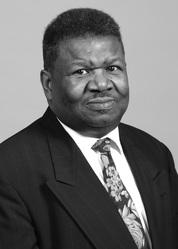 Willie Shellman joined Tuskegee Airmen, Inc. as a civilian in 1985 and currently serves as President of the New England Chapter. He graduated from high school in Chicago, IL. and later graduated from Tuskegee University with a degree in Electrical Engineering. Willie was employed as an Auto Pilot Design Engineer on C-5 and F-14 aircrafts and as an Avionics Design Engineer in missile systems. Mr. Shellman majored in Business Administration at Northeastern University and was employed as a Sales Operations manager in the computer and internet industries. Mr. Shellman most recent employment was as the Executive Director of the YMCA Achievers Programs at the YMCA of Greater Boston. Mr. Shellman is currently retired. Having lived in several cities around the United States, Willie and his wife Maxine, along with their daughter and son have resided in Sudbury Massachusetts for the past thirty-five years. Acknowledgements: Many dedicated Massachusetts Tuskegee Airmen have preceded us in their Homecoming. We dearly remember George S. Lima, Jr. (Rhode Island), William Bennett, Vernon Burke, Charles Diggs, James Fischer, Lloyd Godfrey, Daniel Grant, Stephen Hargrove, Milton Hopkins, Fuzzy Hector, Luther McIlwain, James McLaurin, Allen Monroe, Daniel Moore, Robert Newton Sr., John Roach, Frank Roberts, Thomas Ross, Willis Saunders, Herman Wells and many others. |
* * * * * * * *Archives
August 2023
|
©2024 All Rights Reserved Carole Copeland Thomas • (508) 947-5755 • Carole@mssconnect.com
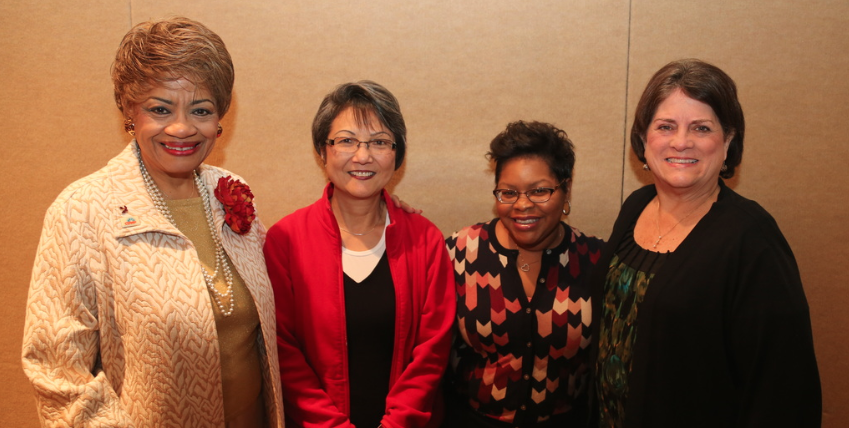
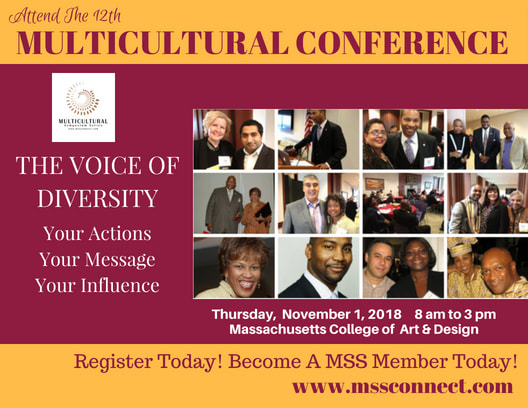

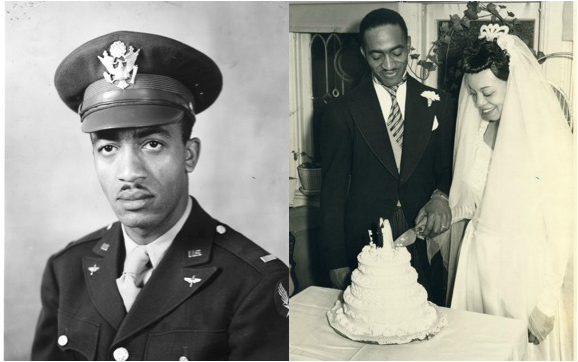
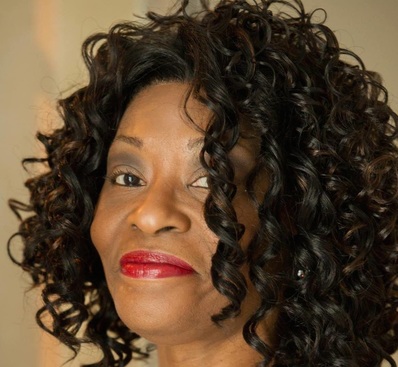
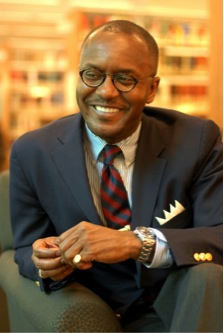
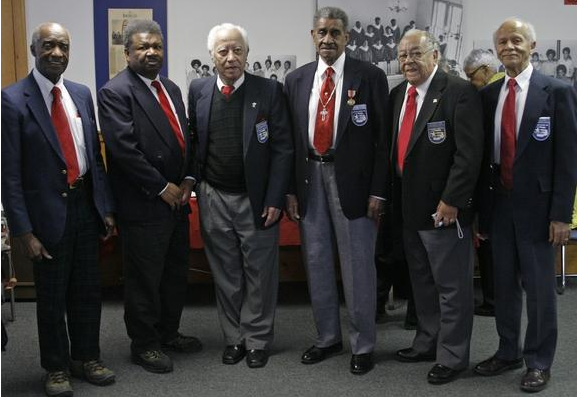
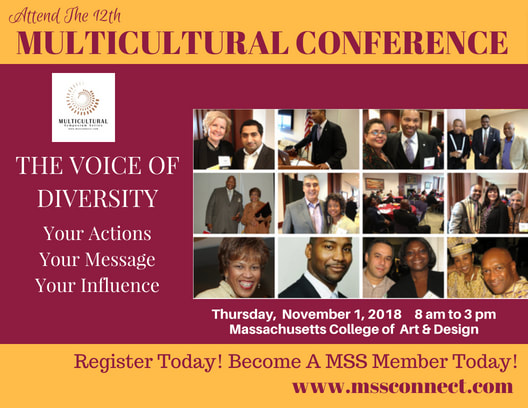
 RSS Feed
RSS Feed